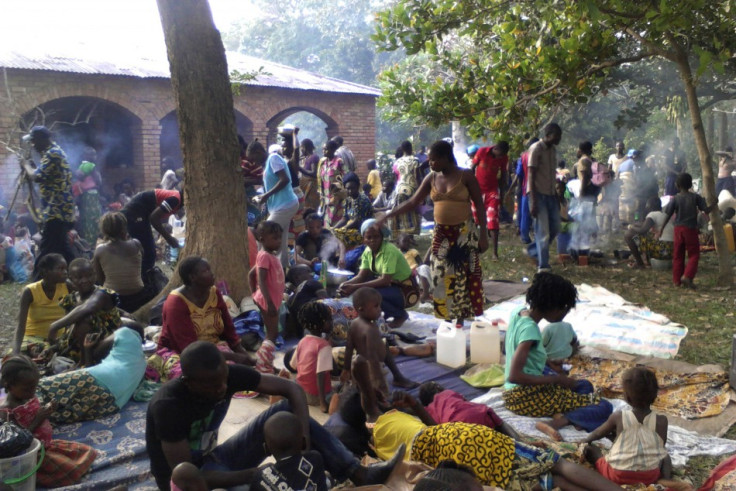Hundreds Dead in Central African Republic as Christians and Muslims Clash

At least 300 people are reported to have been killed in two days of sectarian violence in Bangui, the capital city of the Central African Republic (CAR).
The violence began when Christian militias loyal to the CAR's ousted President Francois Bozize raided Muslim neighbourhoods. "Anti-balaka" are Christian self-defence forces loyal to Bozize. "Balaka" means 'machete' in the local Sango and Mandja languages.
The violence was a reaction to a crackdown on Christians by Muslim rebels, known as Seleka, who seized power in the country and instituted their leader Michel Djotodia as the new president.
Anti-Balakas launched multiple attacks from the north, which again sparked retaliatory attacks from Seleka.
Djotodia is CAR's interim president but he has little control over the gangs of Seleka gunmen, most of whom are from the neighbouring states of Chad and Sudan.
He appealed to France and other African nations for help.
The UN Security Council in New York authorised French and African troops to intervene to protect civilians.
The former French colony has slipped into chaos since the Muslim rebels seized power in March, leading to a series of retaliatory clashes between Muslims and Christians.
African peacekeepers were protecting hundreds of civilians at their base in Bossangoa, but came under heavy fire from the Seleka rebels.
French troops are trying to stop the violence in the capital. Foreign Minister Laurent Fabius said the number of troops in CAR would double, or reach 1,200 "relatively quickly", the RTE reported.
Since 2011, France has intervened in four African countries, in the Ivory Coast, on a joint mission in Libya, in Mali and now in the Central African Republic.
Rich in Gold and Diamonds
CAR is rich in gold, diamonds and uranium but has been marred by decades of instability and sectarian conflicts, often involving infiltration from across its borders.
The streets of Bangui are deserted, with international security forces and rebel fighters patrolling the streets.
Seleka rebels reportedly conducted house-to-house searches to carry out extra-judicial executions. "They are slaughtering us like chicken," Donoboy, a Christian whose family remained in hiding, told Reuters.
As many as 53 bodies were brought to a mosque in Bangui. Most victims were clubbed or hacked to death.
About 281 bodies have already been collected by the Red Cross, which expects more casualties. The Red Cross will resume the search for the dead over the weekend.
"Tomorrow is going to be a monster of a day, we're going to work tomorrow and I think we're going to need a fourth day too," said Pastor Antoine Mbao Bogo, Red Cross President in CAR.
Dozens of bodies were left on the roads in areas too risky for people to go out and collect them.
© Copyright IBTimes 2025. All rights reserved.





















